Thread theme btw if anyone knows more Chappell Roan songs like this let me know, I love this song
When Kennedy ran for President in 2024, he was a joke. The very weird failson of a famous dead politician throwing a strange tantrum because Joe Biden was too pro-vaccine. His announcement speech in 2023 would get taken down by YouTube because of his strange rants about vaccines, and the Brandonslide in the Democratic primaries was too powerful to be stopped - Kennedy couldn't stop Biden, Phillips couldn't stop Biden, Williamson couldn't stop Biden, not even my GOAT Jason Palmer could stop Biden.
Remeber this? That was so awesome. Anyway, Kennedy was a weird joke like Marianne Williamson or Dean Phillips - until he announced he was going to run third party, then he became a very serious threat. His early polls were incredible - some (obviously bollocks ones) were at 15%, and he was generally polled at around 8% - 10% near the start of his run. Of course, fate would not smile upon RFK. After a graveyard shaped closet was unleashed, he eventually gave up and endorsed Trump. Kennedyheads, who had given up there time and money to a real outsider, saw Kennedy give up and endorse a former President. They need to be talked off the rooftops, but are they dumb stupid morons? When has a third party candidate ever really mattered? Three, arguably five, times;
1924: Calvin Coolidge  (R) v John Davis
(R) v John Davis  (D) v Robert La Follette
(D) v Robert La Follette  (P)
(P)
1968: Richard Nixon  (R) v Hubert Humphrey
(R) v Hubert Humphrey  (D) v George Wallace
(D) v George Wallace  (AI)
(AI)
1992: Bill Clinton  (D) v George H.W Bush
(D) v George H.W Bush  (R) v Ross Perot
(R) v Ross Perot  (I)
(I)
These third parties were either marginal influences in the party that had a great amount of regional influence, but a marginal voice if any at all in the party they were associated with - so they struck out and walked their own path, and enthralled millions with their unique messaging. This longpost will look at what they did right, and where Kennedy went wrong.
There are two other third party runs that did very well, but I'm not counting them for a few reasons
The election of 1912 had Progressive Teddy Roosevelt comfortably humiliate Republican Howard Taft in the best ever performance for a third party, coming second with 88 EVs to Howard Taft's 8 EVs. I'm not counting Teddy because he was a former president - I think any third party run would be made stronger by the candidate being a former President.
The election of 1848 had Martin Van Buren win 10% of the vote with the Free Soil party, an anti-slavery party - impressive, but he's not included because he is both a former President, and his third party run had him compete against the Democrats and the Whigs. Around 1896 is when the two party system as we understand it emerges, and the cut-off point to studying third party runs begins.
1924 - Robert "Fighting Bob" La Follette, Progressive Party (Wisconsin) 
"Men must be aggressive for what is right if government is to be saved from men who are aggressive for what is wrong."
Wisconsin has always been a liberal state - meaning that in the early 20th century, it was a Republican strong hold, dominated La Follette and his son, Robert La Follette Jr. La Follette's progressivism was the old school, prairie kind - born and raised on farms, with a conservative "got mine" bent to it that pleasingly led to a dedication to civil liberties and isolationism.
Come 1924, and the Democrats and Republicans both nominate conservatives. Calvin Coolidge won re-nomination as the Republican, while after 103 ballots John Davis was settled on when delegates at the convention started to run out of money had to leave. If you think the duopoly is bad today, Coolidge and Davis aligned on nearly every issue, differing only on condemning the Klan (Davis did so, Silent Cal did not) and on tariffs (Davis liked them low, Coolidge liked them high). Otherwise they agreed on a limited government, deregulated industry and tax cuts. American conservatism has never had it so good, the uniparty in fundamental agreement.
La Follette, not a man loyal to any particular party despite being a Republican, was angry that neither party had nominated any kind of liberal. At the 4th Conference for Progressive Political Action, 1,200 delegates composed of union members, socialists, liberals but not communists, frick off Foster  , nominated Robert La Follette and Burton Wheeler, a ticket that called for mass nationalisation of companies, tax hikes and support for labour unions. And he did amazingly - despite what the map may tell you.
, nominated Robert La Follette and Burton Wheeler, a ticket that called for mass nationalisation of companies, tax hikes and support for labour unions. And he did amazingly - despite what the map may tell you.
"Well winning one state is impressive for a third party, but is it really that good?"
Yep. He won 16.6% of the vote, nearly half the votes of Davis, won his home state of Wisconsin and beat Davis (coming in second) in the following states; Oregon, California, Washington, Montana, Idaho, Nevada, Wyoming, Iowa, Minnesota and both the Dakotas  . These are some pretty astonishing results, located mostly in the Western plains with a higher amount of farms then normal. So, how on earth did La Follette do so well?
. These are some pretty astonishing results, located mostly in the Western plains with a higher amount of farms then normal. So, how on earth did La Follette do so well?
It can't be denied that his unique politics played a role. When both parties have so much in common, it's clear there's an unheard voice in that election and La Follette was able to amplify that voice. There was so much frustration that he near totally unified the left, leaving only the communists out in the cold. Another advantage he had over Coolidge and Davis is that he was actually the one to campaign. Coolidge had a pretty understandable reason - his son Calvin Jr died in a freak tennis accident, when he got a blister that turned sepsis. Obviously in a deep grief, Coolidge rarely left the White House and his campaign speeches were mostly about his theory of governance rather than addressing the issues or his opponents. By contrast, Davis just didn't like campaigning much and in his meeting with party bosses would need his arm twisted to say to he supports them because showing affection in any way was simply not his character. Equally valid reasons, I'm sure one would agree.
Coolidge was always going to defeat to Davis thanks to the booming economy, but La Follette turned Davis into a joke - to this day, Davis' 28.8% amount of the vote is the worst a Democrat has ever done in the Popular Vote, isolating his support near entirely in the Jim Crow South where votes were tightly controlled. To explain just how lacking Davis' support was, electoral votes in the electoral college are determined by population. California had 13 EVs, Alabama had 12. California, won by Coolidge, had 1,263,413 votes with about 400,000 going to La Follette. Alabama, won by Davis, had 157,971 votes, with 45,005 going to Coolidge. Underscoring just how catastrophic Davis' loss was, during the 1864 US election, the South was not able to vote in the election due to the "rebellion" thing - and McCellan still got 44.9% of the vote against Lincoln.
La Follette would die in 1925 at 70, meaning he never got to see his work vindicated by the Democratic party. In 1928, Al Smith would win the Democratic nomination. A progressive, urban Catholic, the south would abandon him in droves due to fear of Papal influence while the north continued to bet on the Republicans - with President Herbert Hoover winning in one of the biggest landslides at the time. Hoover would be left holding the bag when the economy crashed, New York Governor Franklin Roosevelt would unite the Democrats and the country to implement many of La Follette's ambitions - except of course, without the isolationism.
1968 - George Wallace, American Independence Party (Alabama) 
George Wallace standing in the doorway of the University of Alabama to block the entrance of black students. "I say segregation now, segregation tomorrow, segregation forever!"
From a left wing populist to a right wing populist, George Wallace was about as anti-La Follette as you could get. With Hubert Humphrey supporting measures to integrate society and Nixon opposing de-jure segregation, George Wallace, who had built a national profile as one of the top opponents to integration, ran third party to appeal to the raving bigots. The Wallace campaign plan was to win enough states to prevent Nixon from getting 270 Electoral Votes, force the election to the House and work out a deal where Nixon would uphold Segregation and Wallace released his EVs to let Nixon become President. His plan was to speak aggressively and passionately, decrying the elitism of the mainstream parties and "handouts" from the Great Society like Nixon did.
But he also mimicked Humphrey with his support for unions. He had no issue with an honest days pay for an honest days work - but wasn't it so unfair you were paying for lazy people? While he struck a middle ground economically, he went in a different direction for the war - Nixon was "peace", Humphrey was for status quo, and Wallace was ramping it up. An infamous quote of his is "We win in 90 days or we pull out", which sometimes misinterpreted as a peace plan. Wallace wanted to destroy North Vietnam, to teach Red China and the Soviet Union a lesson  . More importantly, he didn't talk about segregation unless pressed about it, where he would of course defend it. Wallace's victory plan was to build a coalition of single issue voters, racists, anti-welfare union workers, warhawks and people that enjoyed him picking fights with hippies, to cause the deadlock.
. More importantly, he didn't talk about segregation unless pressed about it, where he would of course defend it. Wallace's victory plan was to build a coalition of single issue voters, racists, anti-welfare union workers, warhawks and people that enjoyed him picking fights with hippies, to cause the deadlock.
Trust me, picking fights with hippies is critical to the central thesis regarding Kennedy. To generate enough media attention, he used inflammatory language to create controversy. "The only four letter words don't know are W-O-R-K and S-O-A-P!" he would say of his protestors. When it came to the Lyndon Johnson's  protestors? "If any anarchists lie in front of my automobile, it'll be the last automobile they ever lie in front of." Sometimes he'd even get into shouting matches with his protestors. When called a fascist, he boasted "I was killing fascists while you were in diapers!" Another memorable line was when he grinned and chatted to a heckler. "I love you, I really do. Because when you come to me, I get another million votes." People loved it. While Humphrey was in full shill mode, trying to pick up the pieces of the Democratic party, and while Nixon was chilling not doing anything at all because he was winning massively, Wallace was the man in the arena, ranting and raving in a way people loved.
protestors? "If any anarchists lie in front of my automobile, it'll be the last automobile they ever lie in front of." Sometimes he'd even get into shouting matches with his protestors. When called a fascist, he boasted "I was killing fascists while you were in diapers!" Another memorable line was when he grinned and chatted to a heckler. "I love you, I really do. Because when you come to me, I get another million votes." People loved it. While Humphrey was in full shill mode, trying to pick up the pieces of the Democratic party, and while Nixon was chilling not doing anything at all because he was winning massively, Wallace was the man in the arena, ranting and raving in a way people loved.
Wallace at his peak was polling at an astonishing 20% of the vote, but crashed out pretty badly during LeMay's first press conference. "We seem to have a phobia of nuclear weapons" LeMay began. He would continue with "it doesn't make much of a difference to me if I have go to a jungle in Vietnam and get killed with a rusty knife or get killed with a nuclear weapon. As a matter of fact, if I had the choice I would lean towards nuclear weapon." Wallace, visibly panicked, steps in to say "General LeMay hasn't advocated for nuclear weapons, not at all. He discussed nuclear weapons with you, he is against the use of nuclear weapons and I am too." Moments later, LeMay was asked if he would use nukes on Vietnam. "If I found it necessary." Like a fricking sitcom.

The consequences were swift and brutal, with Wallace plateauing from 20% of the vote to around 14%-12%, and he would ultimately get 13.5% of the vote and a far better EV count than La Follette.
301 EVs is a pretty respectable amount from Nixon, but Wallace's defeat was a lot closer then one might think. The Midwestern states had the powerful union votes split between Wallace and Humphrey, letting Nixon sweep the anti-union vote easily. But Nixon only won several Southern states with less then 40% of the vote. Had Wallace preformed better or rather, not suffered from the LeMay fiasco, he could have won North Carolina or Tennessee due to thinness of Nixon's victory. The margin for Nixon's victory goes from 301 - 191 - 46 to 289 - 191 - 58, still a win but a narrow win when you need 270 to win without a deadlock.
In turn, Missouri and Ohio both have Nixon with a margin of roughly 1% over Humphrey. If Wallace didn't have the nuke comments weighing him down, he could have tapped better into the Conservatives of the state and allowed Humphrey to win them both. If those states went blue but Nixon got every vote from North Carolina, the margin of victory is 269 - 229 - 45, just one EV from preventing Wallace's actual victory of forcing Nixon to end integration. Granted, this is all a lot of what ifs. But Wallace's defeat was a very narrow thing.
After the election, Wallace crawled back to the Democrats and became a bizarrely accepted part of it - to the point there were rumours of a Humphrey/Wallace ticket in 1972. He would ultimately come third in the 1972 primaries, despite being shot, and managed to outlive both Hubert Humphrey and Richard Nixon, despite being shot. His legacy is of interest only to historians, his riot having accomplished nothing at all. De-jure segregation is illegal, and de-facto segregation remains commonplace all over America - no thanks to Wallace's tantrum.
1992 - Ross Perot, Independent (Texas) 
"The budget should be balanced, the treasury should be refilled, the public debt should be reduced and the arrogance of public officials should be controlled."
After dealing with two populists, it only makes sense our final candidate before Kennedy is Ross Perot - an anti-populist. A man who went on TV, promised to raise taxes and cut benefits, and soared to the top of the polls.
That's not an exaggeration - Gallup had at one point Ross Perot leading with 39% of the vote, to Bush's 31% and Clinton's 29% of the vote, past the 4% margin of error. As well as these other candidates have done, none of them have ever been polled at outright beating both candidates.
His key policy was going against the grain, and embracing protectionism when Bush and Clinton were both enthusiastic supporters of NAFTA. During the debates, he eerily prophesied "there will be a giant sucking sound going south" if NAFTA passes due to Mexico's lax environmental and labour laws. His other
Those were his most notable policies, and what he really railed against Bush and Clinton on. Bush had got them in this mess, and Clinton's liberal policies weren't gonna get them out. But he also had an eclectic series of other policies - like "Direct Democracy" through electronic town halls (fitting for a CEO of a company that specialised in computers), and a less involved America (although not isolationist).
Also unique was his messaging. While Clinton used platitudes and uplifting advertising, and Bush viciously attacked Clinton as a philandering communist plant, Perot's defining ads would be him buying 30 minutes of air time and frankly explaining what he thought was right for the country and how he would do it, with CHARTS BABY!
It's goes against every single populist idea there's ever been. Perot had policy that didn't have "popular" aspects of it, delivered in a frank, clear and detailed manner. By nearly any political junkie's understanding of the American electorate, he should have flopped, his advertisements discovered by pathetic teenagers saying "so true!" and calling themselves Perotstans in the new 20s.
There is a lot more to the story then this, worthy of it's own article (I haven't even mentioned Perot thinking the CIA was sabotaging him or dropping out of the race), but that is the short version when it comes to analysing Perot's place in third party history.
With Bush losing, the Republicans generally considered Perot to have stolen votes from Bush and handing Clinton the election - the facts don't reflect this, Perot generally took from both bases, but the Republicans grudgingly took notice and for the midterms introduced the Contract With America, an ambitious set of reforms that included the Balanced Budget Amendment to outlaw deficit and term limits for members of Congress - all of which failed to pass.
Perot would try his luck again in 1996, forming the Reform Party and couping it's nomination from Richard Lamm, and getting decent results - 8.4% is nothing to sneeze at, and more then enough to win the party federal funding. The party's apex would be in 1998, when former pro-wrestler Jesse "The Body" Ventura won the Minnesota Gubernatorial race. The Reform party would crumble shortly afterwards, as Progressives and Paleoconservatives feuded with each other over which way to take the party - ultimately the Paleoconservatives won, nominating Pat Buchanan and getting less then 1% in 2000. Ross Perot for his part endorsed George Bush.
2024 - Robert Francis Kennedy Jr, Independent (California) 
"Why should somebody be able to pollute the air, which belongs to all of us, or destroy a river or a waterway, which is supposed to belong to the whole community?"
What does a left wing populist, a right wing populist, and centrist anti-populist have in common? Why did they succeed when the Greens, the Libertarians, the Communists, and my GOATS the Prohibition Party fail, time after time?
I narrowed it down to three factors.
A wedge issue
A wide coalition
A unique voice
A Wedge Issue
The first and most important step is the wedge issue. La Follette had progressivism, Wallace had segregation and Perot had NAFTA and the deficit. You need to be saying something that no one else is saying, that really resonates. Chase Oliver of the Libertarians fails because his socially progressive message is being used by the Democrats, and his fiscal conservatism is being used by the Republicans. Perhaps there are voters that prefer his message as a whole, but most consider one issue more important and back the party likely to win to accomplish this goal.
It's called the marketplace of ideas, and you need to operate like a business. You can't walk in with a mishmash of policy both party's are offering, you just enter a saturated market. You need a unique selling point no other competitor is offering, or else you'll just be overshadowed by your better funded competitors. (Glad to put my diploma in business to good use).
Did RFK Jr have these unique ideas? In a sense he did. As he pointed out frequently, the COVID-19 vaccines came from one Donald J. Trump's project Warpspeed.
This didn't matter. Despite starting as a hippie thing, of which RFK is a remnant of, vaccine scepticism has become firmly an stance of the fringe right, who Donald Trump commands. They may not like that Trump is pro-vaccine (here's Trump being booed for saying his crowd should take the vaccine) , but he is still their guy. Saying "uhhhh I don't trust those vaccines" doesn't fly when Q is warning people if they don't back Trump JFK Jr will stay dead or whatever.
A Wide Coalition
This is important, third party or first. No single issue is ever popular enough to propel someone to the finish line just on that single issue. You need to have a stance on everything that's in the public consensus as "important". La Follette's sheer uniqueness gave him the widest coalition of the American left there's ever really been, while George Wallace flirted with Warhawks and the unions. Ross Perot's top concern was the economy, but he also had the most non-interventionist foreign policy and some eccentric ideas on general governance.
I conducted a small (tiny) poll asking random people why they thought RFK Jr was running and to assume it was in good faith. The vast majority of the answers I got were "vaccines". I had three other answers of the dozen or so people I asked - one included Bobby's issues with the FDA, which is technically different but ranting about the chemicals in our food is on a similar wavelength to anti-vaccine rhetoric, two answers included opposition to the duopoly, and one came from an outright Bobby fan who correctly identified Bobby has having the most anti-corporate, pro-environment platform in the race (aided by Biden and Harris not actually having a platform).
No one mentioned his isolationist foreign policy, his shockingly progressive stance on race, his transphobia, or his ties to crypto currency. Because he never really talked about it! It was all about the Duopoly, the FDA, or the Vaccines. He seemed to be trying to build this wide net on his policy page, but gave up when it came time to campaign and focused on his most nutjob stances.
Opposing the Two-Party system isn't enough. If it was, Gary Johnson would be included in this list. Remember him? The 2016 Libertarian candidate, running against two of the least popular mainstream candidates ever. He won 3.28% of the vote, not a terrible result for a third party, but hardly what you would expect from arguably the least popular race of all time.
So RFK Jr doesn't really have a wedge issue, and he doesn't really have a coalition. Surely such a wacky candidate has the final part?
A Unique Voice
He sure did have a unique voice! Because spasmodic dysphonia and he does seek treatment for it, it's very insensitive to make fun of it.
But when it comes to how he campaigned, he was rather standard. He appeared on podcasts… and that was about it
Sitting down and explaining your crank beliefs on a podcast may have been unique in 2010, but it's really not that different from sitting down and explaining your crank beliefs on a TV show these days. In fact, Donald Trump has been the one experimenting with messaging, doing a "X Space" and going on a livestream with popular r-slur Adin Ross.
There is one exception to this. One instance where he had a truly message that wasn't about chemicals, delivered in a manner that was unique and appealed to people outside of his eccentric circle - his Superbowl ad, wherein all that was advertised is that a Kennedy is running for president, and he's younger than Joe Biden and Donald Trump.
The same fricking duopoly message that doesn't work.
In all three factors, Kennedy came up short. He couldn't wedge an issue, he refused to expand his circle, and his campaign style was far blander then his bizarre campaign ideas.
Kenndy and his scandals
The Scandals
Scandals are part of any good campaign, and Kennedy is no exception. His campaign may be more famous for the constant, bizarre scandals then any of his very silly beliefs.
All I can say is Kennedy is very, very lucky that the outlandish scandals overshadowed his dark past.
In the same day he was accused of eating a dog, he was accused of sexually assaulting a woman he hired as babysitter, allegations he responded to with a blasé "I am not a Church Boy". These very serious criminal allegations were overshadowed by the ludicrous ones, a reoccurring theme. The fact he literally had a brainworm overshadowed how this information got out - it was disclosed during divorce proceedings where he was so callous to his ex-wife during and after the marriage, he drove her to suicide. There is a real darkness in Kennedy, overshadowed by the utter farce much of his campaign seemed to be.
The future of third parties
It's hard to not view the future of third party politics as bleak. The party's are more unified then ever, but that's come with polarisation increasing loyalty to the parties. Wedge issues are by their nature impossible to predict, and in the age of mass media, what's unique is generally a very fleeting thing.
Joe Biden dropped out of the race, Donald Trump got shot about two months ago, and the world has just continued to chug with those events just being part of the news cycle. The third party uniqueness vital for them to stand a chance seems like they're much more likely to just be a fad, rather than anything impactful.
I hope I'm wrong. But more likely, you'll see outsiders - like former Reform party member Donald Trump or Independent Bernie Sanders work within the party, and force compromises along inside the system.






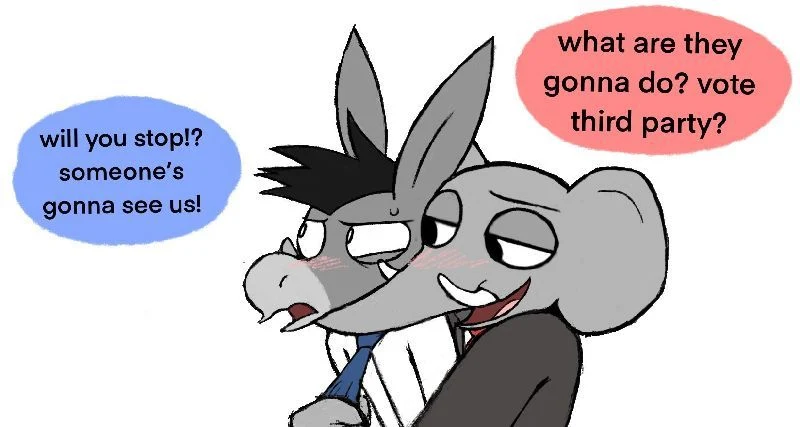
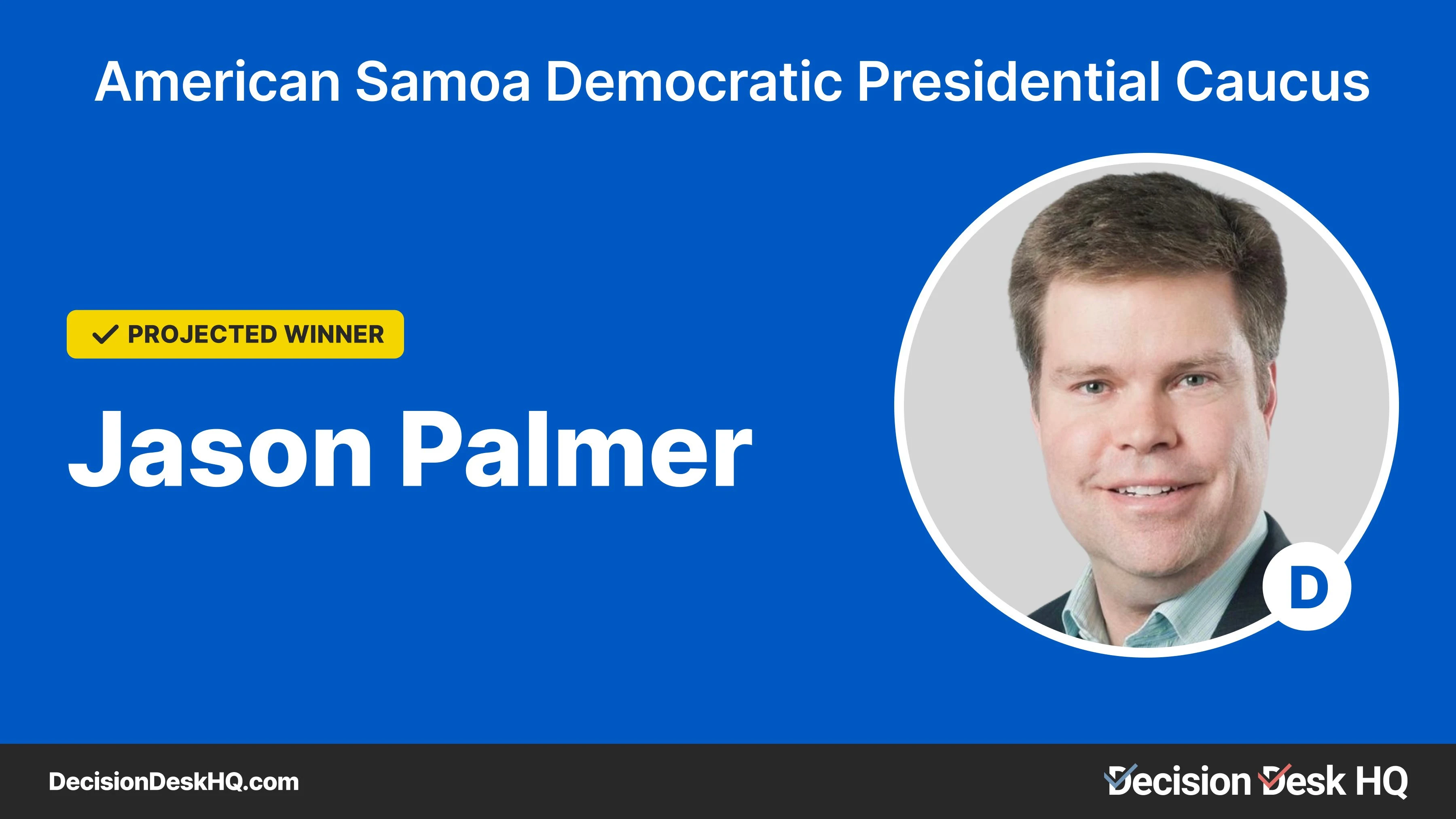
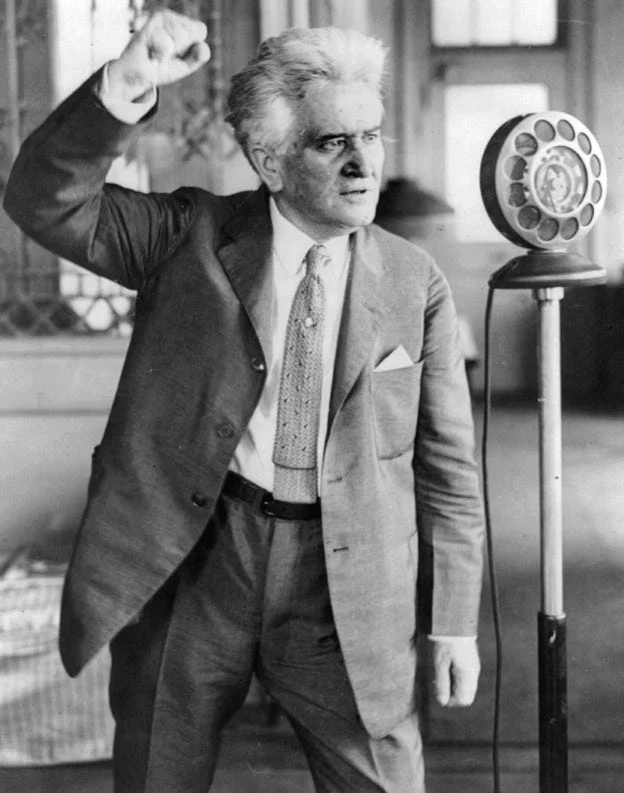
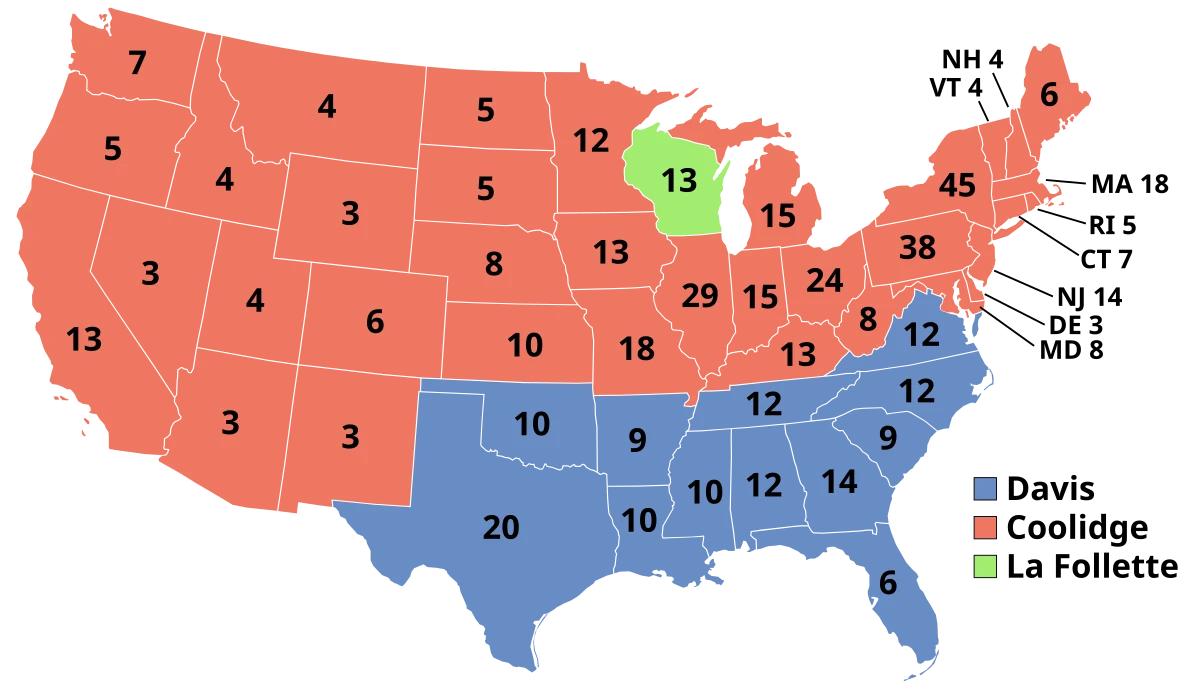
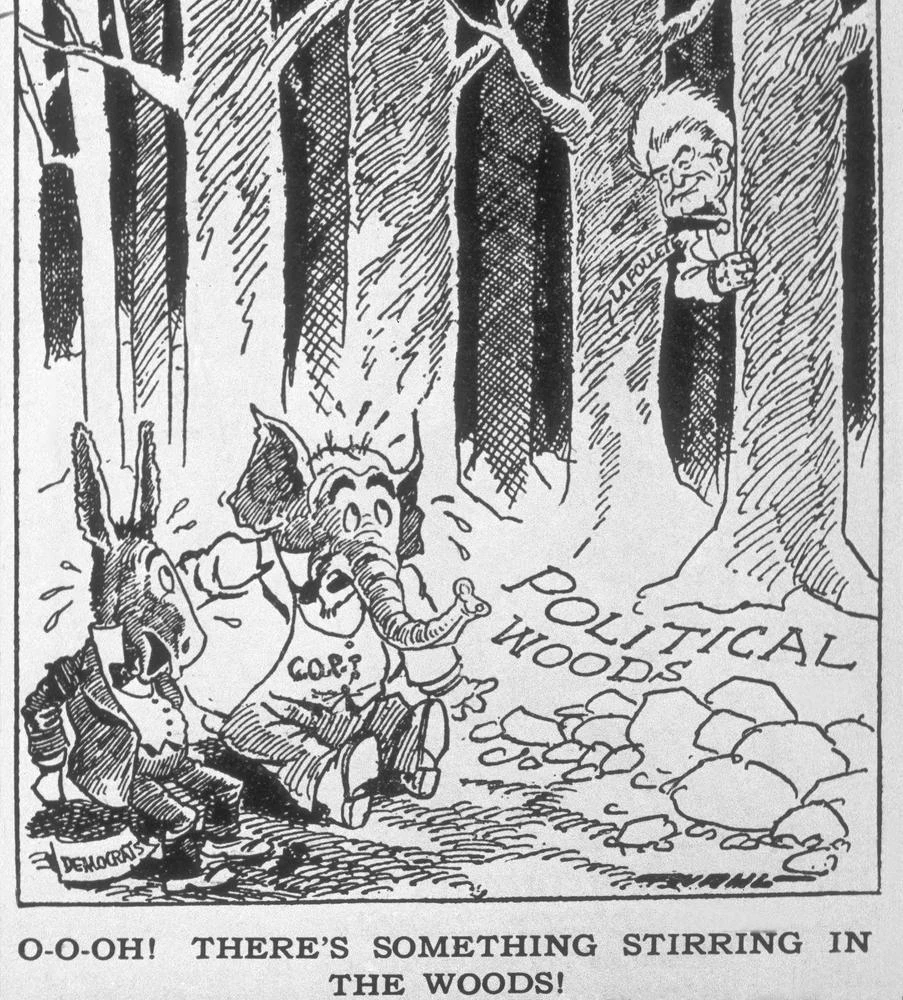
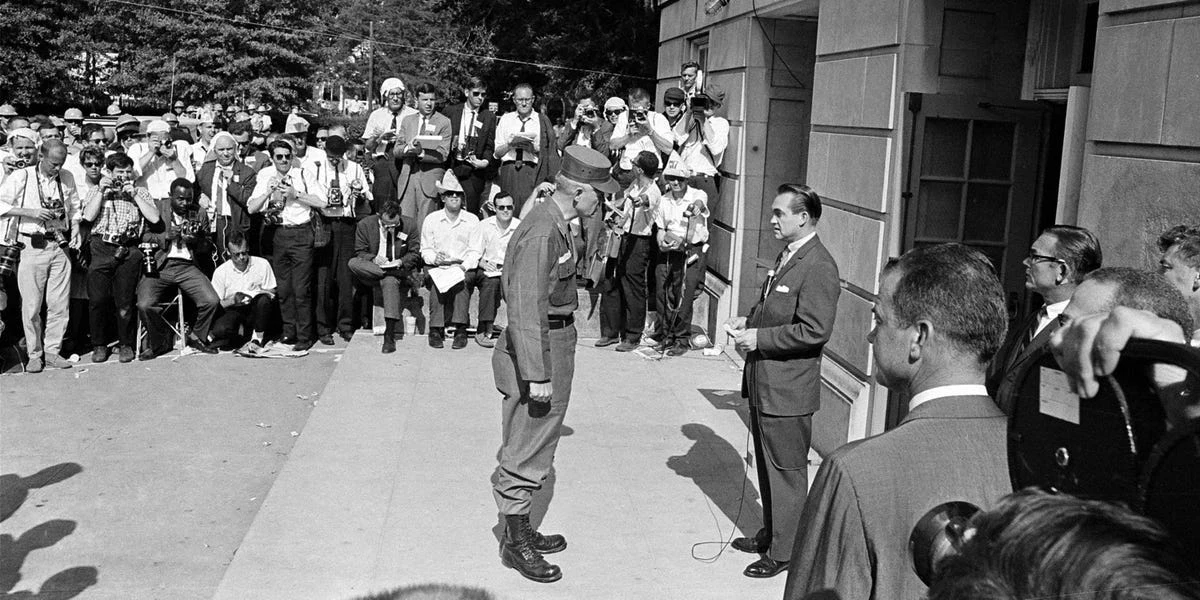
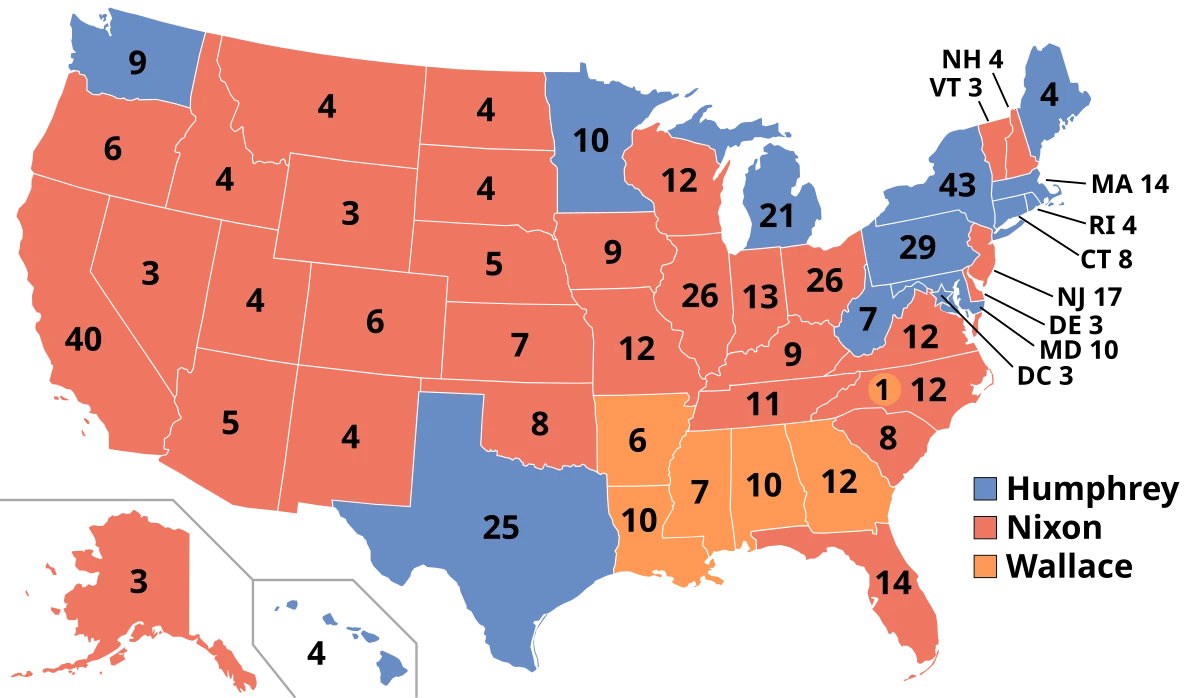
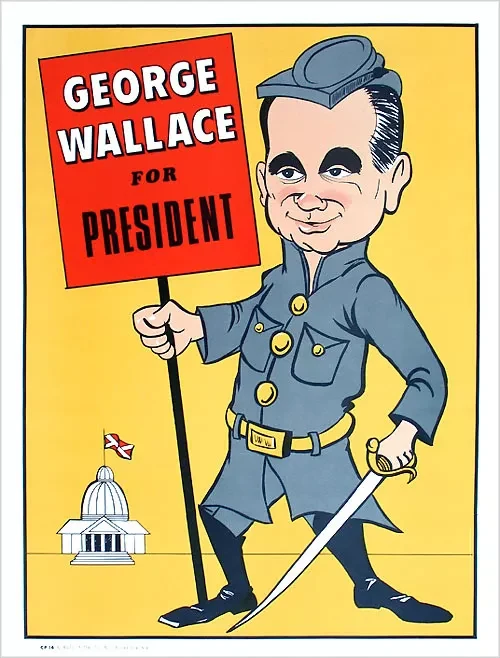
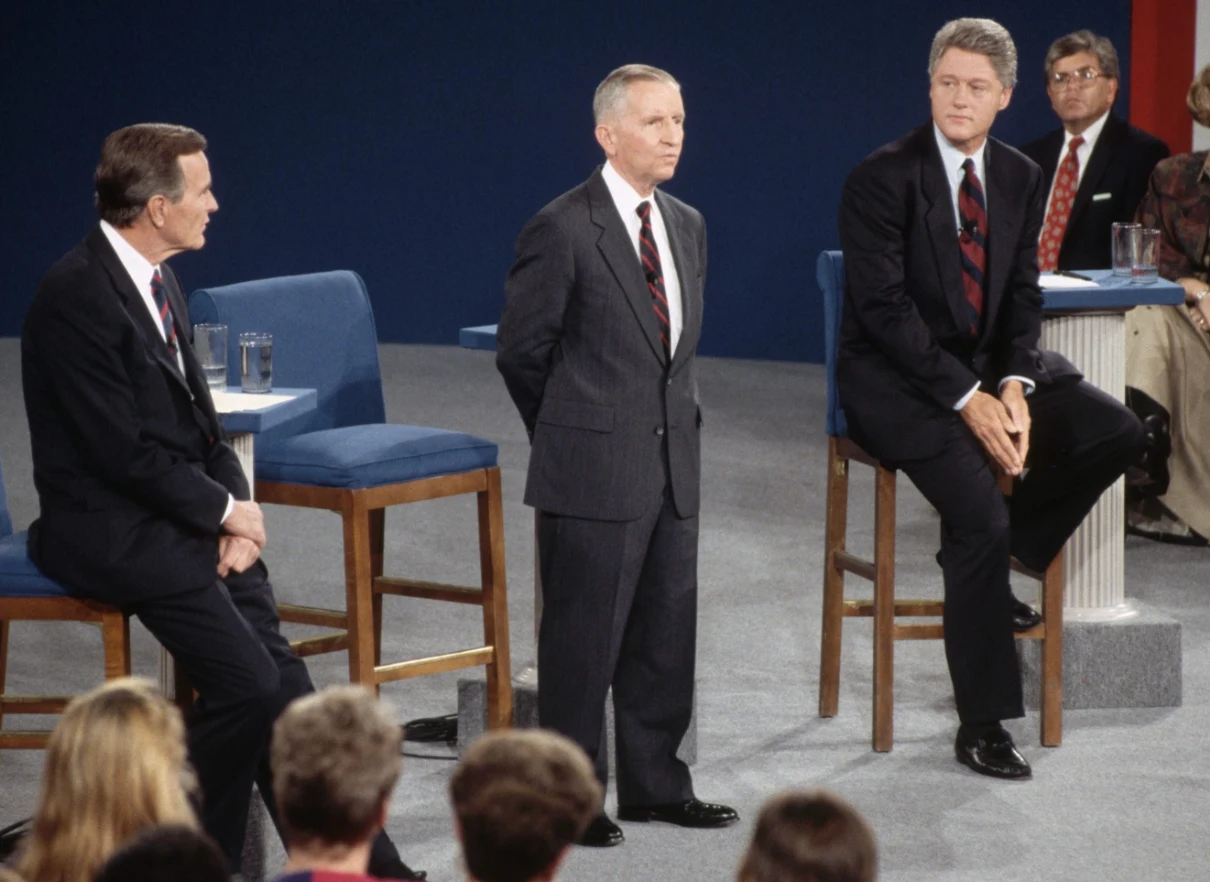
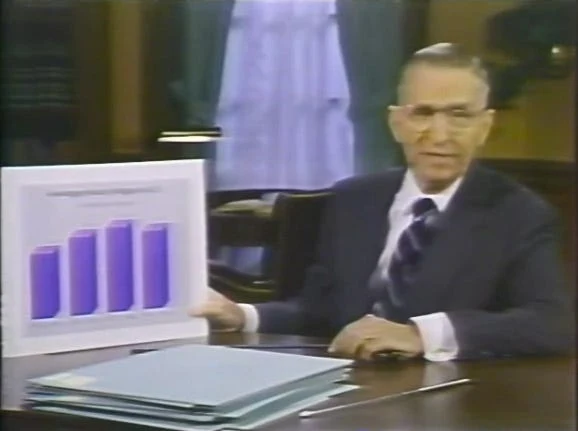
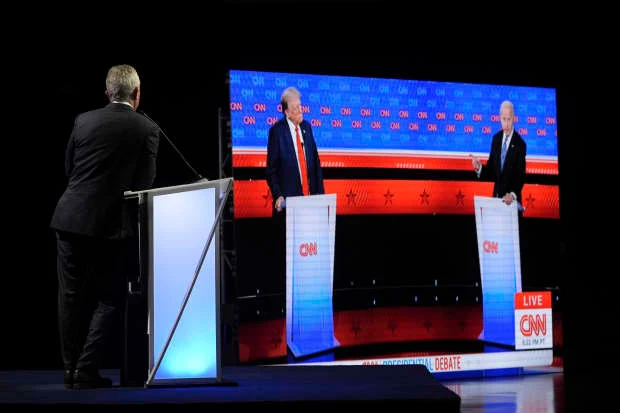
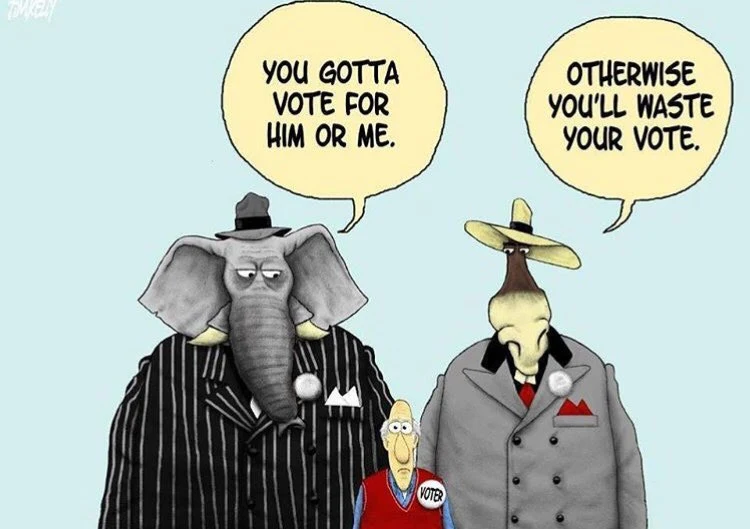
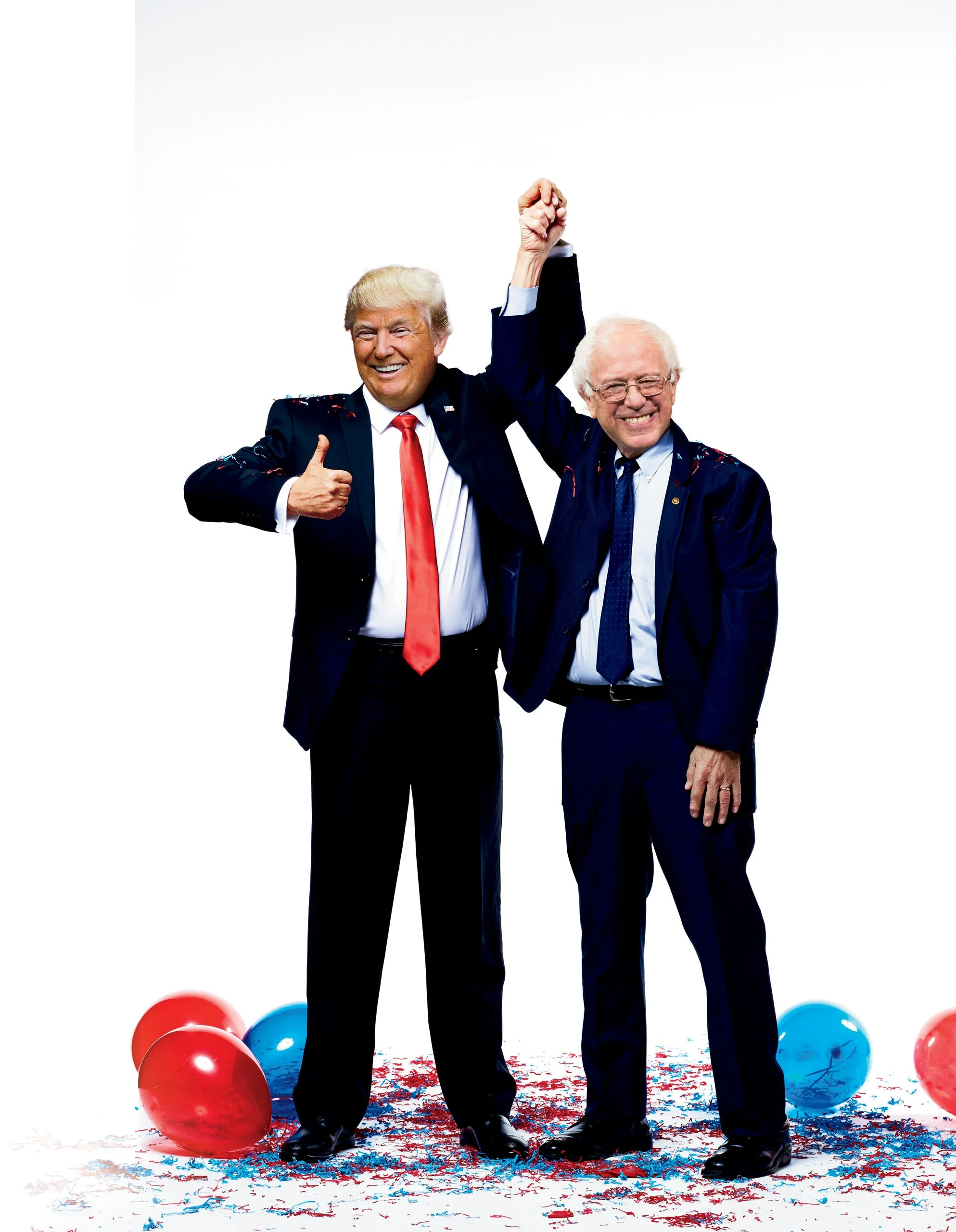


Jump in the discussion.
No email address required.
Bollocks I wanted to marseify the post
Jump in the discussion.
No email address required.
When Kennedy ran for President in 2024, he was a joke. The very weird failson of a famous dead politician throwing a strange tantrum because Joe Biden was too pro-vaccine. His announcement speech in 2023 would get taken down by YouTube because of his strange rants about vaccines, and the Brandonslide in the Democratic primaries was too powerful to be stopped - Kennedy couldn't stop Biden, Phillips couldn't stop Biden, Williamson couldn't stop Biden, not even my GOAT Jason Palmer could stop Biden.
Remeber this? That was so awesome. Anyway, Kennedy was a weird joke like Marianne Williamson or Dean Phillips - until he announced he was going to run third party, then he became a very serious threat. His early polls were incredible - some (obviously bollocks ones) were at 15%, and he was generally polled at around 8% - 10% near the start of his run. Of course, fate would not smile upon RFK. After a graveyard shaped closet was unleashed, he eventually gave up and endorsed Trump. Kennedyheads, who had given up there time and money to a real outsider, saw Kennedy give up and endorse a former President. They need to be talked off the rooftops, but are they dumb stupid morons? When has a third party candidate ever really mattered? Three, arguably five, times;
1924: Calvin Coolidge (R) v John Davis
(R) v John Davis  (D) v Robert La Follette
(D) v Robert La Follette  (P)
(P)
1968: Richard Nixon (R) v Hubert Humphrey
(R) v Hubert Humphrey  (D) v George Wallace
(D) v George Wallace  (AI)
(AI)
1992: Bill Clinton (D) v George H.W Bush
(D) v George H.W Bush  (R) v Ross Perot
(R) v Ross Perot  (I)
(I)
These third parties were either marginal influences in the party that had a great amount of regional influence, but a marginal voice if any at all in the party they were associated with - so they struck out and walked their own path, and enthralled millions with their unique messaging. This longpost will look at what they did right, and where Kennedy went wrong.
There are two other third party runs that did very well, but I'm not counting them for a few reasons
The election of 1912 had Progressive Teddy Roosevelt comfortably humiliate Republican Howard Taft in the best ever performance for a third party, coming second with 88 EVs to Howard Taft's 8 EVs. I'm not counting Teddy because he was a former president - I think any third party run would be made stronger by the candidate being a former President.
The election of 1848 had Martin Van Buren win 10% of the vote with the Free Soil party, an anti-slavery party - impressive, but he's not included because he is both a former President, and his third party run had him compete against the Democrats and the Whigs. Around 1896 is when the two party system as we understand it emerges, and the cut-off point to studying third party runs begins.
1924 - Robert "Fighting Bob" La Follette, Progressive Party (Wisconsin)
"Men must be aggressive for what is right if government is to be saved from men who are aggressive for what is wrong."
Wisconsin has always been a liberal state - meaning that in the early 20th century, it was a Republican strong hold, dominated La Follette and his son, Robert La Follette Jr. La Follette's progressivism was the old school, prairie kind - born and raised on farms, with a conservative "got mine" bent to it that pleasingly led to a dedication to civil liberties and isolationism.
Come 1924, and the Democrats and Republicans both nominate conservatives. Calvin Coolidge won re-nomination as the Republican, while after 103 ballots John Davis was settled on when delegates at the convention started to run out of money had to leave. If you think the duopoly is bad today, Coolidge and Davis aligned on nearly every issue, differing only on condemning the Klan (Davis did so, Silent Cal did not) and on tariffs (Davis liked them low, Coolidge liked them high). Otherwise they agreed on a limited government, deregulated industry and tax cuts. American conservatism has never had it so good, the uniparty in fundamental agreement.
La Follette, not a man loyal to any particular party despite being a Republican, was angry that neither party had nominated any kind of liberal. At the 4th Conference for Progressive Political Action, 1,200 delegates composed of union members, socialists, liberals but not communists, frick off Foster , nominated Robert La Follette and Burton Wheeler, a ticket that called for mass nationalisation of companies, tax hikes and support for labour unions. And he did amazingly - despite what the map may tell you.
, nominated Robert La Follette and Burton Wheeler, a ticket that called for mass nationalisation of companies, tax hikes and support for labour unions. And he did amazingly - despite what the map may tell you.
"Well winning one state is impressive for a third party, but is it really that good?"
Yep. He won 16.6% of the vote, nearly half the votes of Davis, won his home state of Wisconsin and beat Davis (coming in second) in the following states; Oregon, California, Washington, Montana, Idaho, Nevada, Wyoming, Iowa, Minnesota and both the Dakotas . These are some pretty astonishing results, located mostly in the Western plains with a higher amount of farms then normal. So, how on earth did La Follette do so well?
. These are some pretty astonishing results, located mostly in the Western plains with a higher amount of farms then normal. So, how on earth did La Follette do so well?
It can't be denied that his unique politics played a role. When both parties have so much in common, it's clear there's an unheard voice in that election and La Follette was able to amplify that voice. There was so much frustration that he near totally unified the left, leaving only the communists out in the cold. Another advantage he had over Coolidge and Davis is that he was actually the one to campaign. Coolidge had a pretty understandable reason - his son Calvin Jr died in a freak tennis accident, when he got a blister that turned sepsis. Obviously in a deep grief, Coolidge rarely left the White House and his campaign speeches were mostly about his theory of governance rather than addressing the issues or his opponents. By contrast, Davis just didn't like campaigning much and in his meeting with party bosses would need his arm twisted to say to he supports them because showing affection in any way was simply not his character. Equally valid reasons, I'm sure one would agree.
Coolidge was always going to defeat to Davis thanks to the booming economy, but La Follette turned Davis into a joke - to this day, Davis' 28.8% amount of the vote is the worst a Democrat has ever done in the Popular Vote, isolating his support near entirely in the Jim Crow South where votes were tightly controlled. To explain just how lacking Davis' support was, electoral votes in the electoral college are determined by population. California had 13 EVs, Alabama had 12. California, won by Coolidge, had 1,263,413 votes with about 400,000 going to La Follette. Alabama, won by Davis, had 157,971 votes, with 45,005 going to Coolidge. Underscoring just how catastrophic Davis' loss was, during the 1864 US election, the South was not able to vote in the election due to the "rebellion" thing - and McCellan still got 44.9% of the vote against Lincoln.
La Follette would die in 1925 at 70, meaning he never got to see his work vindicated by the Democratic party. In 1928, Al Smith would win the Democratic nomination. A progressive, urban Catholic, the south would abandon him in droves due to fear of Papal influence while the north continued to bet on the Republicans - with President Herbert Hoover winning in one of the biggest landslides at the time. Hoover would be left holding the bag when the economy crashed, New York Governor Franklin Roosevelt would unite the Democrats and the country to implement many of La Follette's ambitions - except of course, without the isolationism.
1968 - George Wallace, American Independence Party (Alabama)
George Wallace standing in the doorway of the University of Alabama to block the entrance of black students. "I say segregation now, segregation tomorrow, segregation forever!"
From a left wing populist to a right wing populist, George Wallace was about as anti-La Follette as you could get. With Hubert Humphrey supporting measures to integrate society and Nixon opposing de-jure segregation, George Wallace, who had built a national profile as one of the top opponents to integration, ran third party to appeal to the raving bigots. The Wallace campaign plan was to win enough states to prevent Nixon from getting 270 Electoral Votes, force the election to the House and work out a deal where Nixon would uphold Segregation and Wallace released his EVs to let Nixon become President. His plan was to speak aggressively and passionately, decrying the elitism of the mainstream parties and "handouts" from the Great Society like Nixon did.
But he also mimicked Humphrey with his support for unions. He had no issue with an honest days pay for an honest days work - but wasn't it so unfair you were paying for lazy people? While he struck a middle ground economically he went in a different direction for the war - Nixon was "peace", Humphrey was for status quo, and Wallace was ramping it up. An infamous quote of his is "We win in 90 days or we pull out", which sometimes misinterpreted as a peace plan. Wallace wanted to destroy North Vietnam, to teach Red China and the Soviet Union a lesson . More importantly, he didn't talk about segregation unless pressed about it, where he would of course defend it. Wallace's victory plan was to build a coalition of single issue voters, racists, anti-welfare union workers, warhawks and people that enjoyed him picking fights with hippies, to cause the deadlock.
. More importantly, he didn't talk about segregation unless pressed about it, where he would of course defend it. Wallace's victory plan was to build a coalition of single issue voters, racists, anti-welfare union workers, warhawks and people that enjoyed him picking fights with hippies, to cause the deadlock.
Trust me, picking fights with hippies is critical to the central thesis regarding Kennedy
Jump in the discussion.
No email address required.
tldr?
Jump in the discussion.
No email address required.
yea
Jump in the discussion.
No email address required.
More options
Context
More options
Context
Many are saying it!
Jump in the discussion.
No email address required.
More options
Context
More options
Context
Jump in the discussion.
No email address required.
More options
Context
More options
Context